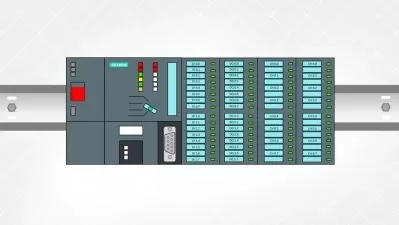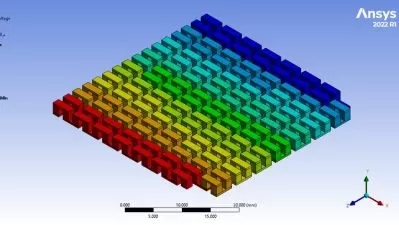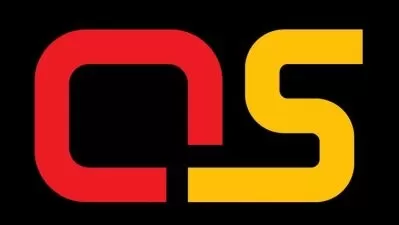Digital Signal Processing
Dr Amol Prakash Bhagat
20:34:00
Description
Signal Processing
What You'll Learn?
- Discrete –Time Signals and Systems: Introduction to DSP, Advantages, basic elements of DSP system, sampling theorem, A/D, D/A conversion, quantization
- Elementary discretetime sequences. Discrete-time systems: description, representation, classification (linear, time invariant, static, casual, stable)
- Analysis of DTLTI systems: The convolution sum, properties of convolution, Analysis of causal LTI systems, stability of LTI systems, step response of LTI system
- Difference equation, recursive & non recursive systems, solution of difference equations, Impulse response of LTI recursive system. Correlation of discrete time
- z- Transform and Analysis of LTI Systems: Definition of z- Transform, properties, rational z-Transforms, evaluation of the inverse z- Transforms
- Analysis of LTI systems in z-domain, transient and steady-state responses, causality, stability, pole-zero cancellation, the Schur-Cohn stability test
- Fourier Transforms, the DFT and FFT: Definition & properties of Fourier transform, relation with z-transform. Finite duration sequences and DFT
- Properties, circular convolution, Fast algorithms for the computation of DFT: radix-2 and radix- 4 FFT algorithms
- Design of Digital Filters: Classification of filters: LP, HP, BP, FIR and IIR filters, filter specifications. Design Windows and by Frequency sampling methods
- Design of IIR filters from Analog filters using approximation of derivatives, Impulse invariant transformation, Bilinear transformation and Matched z-Transform
- Realization of Discrete-Time systems: Structures for realization of Discrete-Time systems, realization of FIR systems: Direct Form, Cascade Form,
- Frequency sampling and Lattice structures. Realization of IIR filters: Direct Form, Signal flow graph and Transposed structures, Cascade form,
- Lattice and Lattice ladder. Realization for IIR systems
Who is this for?
What You Need to Know?
More details
DescriptionDiscrete –Time Signals and Systems: Introduction to DSP, Advantages, basic elements of DSP system, sampling theorem, A/D, D/A conversion, quantization. Elementary discretetime sequences. Discrete-time systems: description, representation, classification (linear, timeinvariant, static, casual, stable)
Analysis of DTLTI systems: The convolution sum, properties of convolution, Analysis of causal LTI systems, stability of LTI systems, step response of LTI systems, difference equation, recursive & non recursive discrete time systems, solution of difference equations, Impulse response of LTI recursive system. Correlation of discrete time signals
z- Transform and Analysis of LTI Systems: Definition of z- Transform, properties, rational z-Transforms, evaluation of the inverse z- Transforms, analysis of linear time invariant systems in z-domain, transient and steady-state responses, causality, stability, pole-zero cancellation, the Schur-Cohn stability test
Fourier Transforms, the DFT and FFT: Definition & properties of Fourier transform, relation with z-transform. Finite duration sequences and the discrete Fourier transform(DFT), properties, circular convolution, Fast algorithms for the computation of DFT: radix-2 and radix4 FFT algorithms
Design of Digital Filters: Classification of filters: LP, HP, BP, FIR and IIR filters, filter specifications. Design of FIR filters using Windows and by Frequency sampling methods. Design of IIR filters from Analog filters using approximation of derivatives, Impulse invariant transformation, Bilinear transformation and Matched z-Transformation, Commonly used Analog filters and IIR Filter design example
Realization of Discrete-Time systems: Structures for realization of Discrete-Time systems, realization of FIR systems: Direct Form, Cascade Form, Frequency sampling and Lattice structures. Realization of IIR filters: Direct Form, Signal flow graph and Transposed structures, Cascade form, Lattice and Lattice ladder. Realization for IIR systems
Who this course is for:
- Undergraduate and Post Graduate Students
Discrete –Time Signals and Systems: Introduction to DSP, Advantages, basic elements of DSP system, sampling theorem, A/D, D/A conversion, quantization. Elementary discretetime sequences. Discrete-time systems: description, representation, classification (linear, timeinvariant, static, casual, stable)
Analysis of DTLTI systems: The convolution sum, properties of convolution, Analysis of causal LTI systems, stability of LTI systems, step response of LTI systems, difference equation, recursive & non recursive discrete time systems, solution of difference equations, Impulse response of LTI recursive system. Correlation of discrete time signals
z- Transform and Analysis of LTI Systems: Definition of z- Transform, properties, rational z-Transforms, evaluation of the inverse z- Transforms, analysis of linear time invariant systems in z-domain, transient and steady-state responses, causality, stability, pole-zero cancellation, the Schur-Cohn stability test
Fourier Transforms, the DFT and FFT: Definition & properties of Fourier transform, relation with z-transform. Finite duration sequences and the discrete Fourier transform(DFT), properties, circular convolution, Fast algorithms for the computation of DFT: radix-2 and radix4 FFT algorithms
Design of Digital Filters: Classification of filters: LP, HP, BP, FIR and IIR filters, filter specifications. Design of FIR filters using Windows and by Frequency sampling methods. Design of IIR filters from Analog filters using approximation of derivatives, Impulse invariant transformation, Bilinear transformation and Matched z-Transformation, Commonly used Analog filters and IIR Filter design example
Realization of Discrete-Time systems: Structures for realization of Discrete-Time systems, realization of FIR systems: Direct Form, Cascade Form, Frequency sampling and Lattice structures. Realization of IIR filters: Direct Form, Signal flow graph and Transposed structures, Cascade form, Lattice and Lattice ladder. Realization for IIR systems
Who this course is for:
- Undergraduate and Post Graduate Students
User Reviews
Rating
Dr Amol Prakash Bhagat
Instructor's Courses
Udemy
View courses Udemy- language english
- Training sessions 42
- duration 20:34:00
- Release Date 2023/08/21











